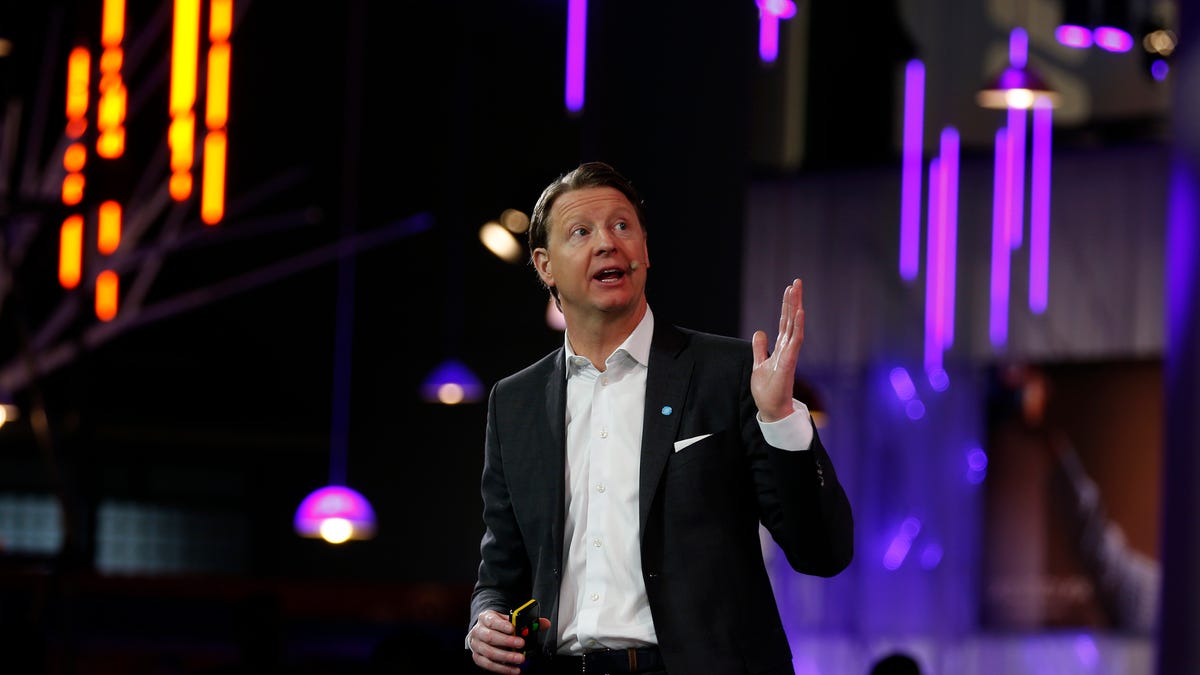Why 5G will be the superfast Swiss Army knife of wireless networks
Hans Vestberg, CEO of telecom equipment vendor Ericsson, sees the next decade's 5G networks being smart enough to know what kind of device is using it, and why.
When it comes to the wireless networks of the future, speed won't be everything.
The advent of so-called 5G, or fifth-generation, wireless technology will bring incredible speed, for sure, with the industry aiming to see your network connection jump by 100 times. (Yes, 100.) More importantly, the network will be smart enough to act differently depending on how it's accessed, whether from a heart monitor when you're relaxing at home or from a self-driving car zipping down a crowded highway.
That's according to Hans Vestberg, CEO of Ericsson, one of the world's largest suppliers of telecommunications equipment.
His comments provide a glimpse into what tomorrow's wireless network will look like. While carriers around the world are still deploying 4G networks, which have brought broadband speeds over the air, there's increasing chatter about what's next. In the US, Verizon Wireless has already said it plans to field-test its own take on 5G next year, and the industry is starting to talk about the new kinds of devices and connected services that will spring from the technology.
"Many industries will look at how 5G will transform their business," Vestberg said in an interview on Friday. "It's my job to build a network to handle that."
As fast as Verizon is moving, the industry isn't expected to invest in the technology in earnest until 2020. The speed and capacity 5G brings could offer a legitimate alternative to the physical connection available via Internet service providers and companies such as Google, which use fiber optics to deliver super-high speeds. 5G is supposed to be even faster.
Depending on the device, 5G may have a range of behaviors, he said. The network has to be responsive enough to tell a self-driving car where to go and how to react to situations that require a split-second reaction. It has to be consistent enough to maintain a connection with a hypothetical chipset in your body that can monitor your vitals, but know to instantly ping emergency services in case something goes wrong. It also has to operate efficiently enough that farms can use sensors that can ping the network for 10 years on a single charge.
In other cases, 5G wireless technology may replace the broadband service coming into your home via wires or cables, Vestberg said. It's already happening with 4G in some parts of the world, but 5G adds higher speed and capacity. With 5G, carriers could also deliver super-sharp 4K video to the home.
One of the reasons Verizon is holding its test so early is to figure out what kinds of applications can take advantage of 5G, the New York-based telecommunications company said in September.
While 5G may bring many things, it's unlikely that unlimited data will be one of them. In the US, Verizon and AT&T have already eliminated their options for an all-you-can-eat data offering, while T-Mobile and Sprint have limits in place for excessive users. The curtailing of unlimited plans has more to do with economic issues than technical ones.
Vestberg declined to comment on the plans of his carrier customers, but noted that there was a cost to building out these networks, with players such as AT&T projected to spend roughly $10 billion this year. He also warned that as capacity and speeds have increased, so too has usage.
Ericsson could use the boost in equipment sales. The Swedish company posted a third-quarter profit that fell below expectations as carriers around the world slowed down their network deployments.


